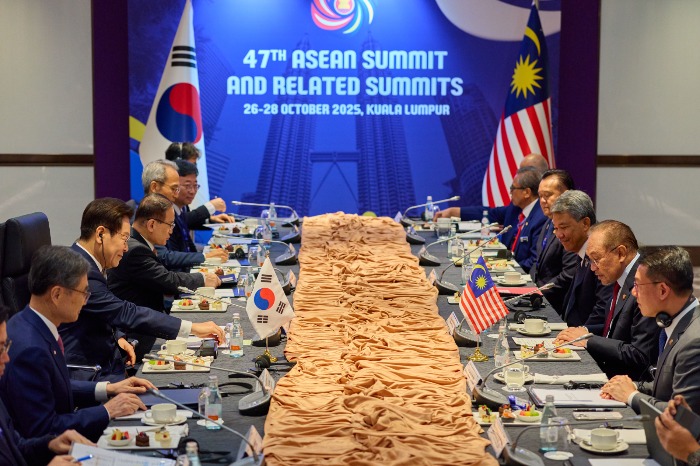BREAKING: South Korea and Malaysia have just finalized a landmark free trade agreement during the 47th ASEAN Summit in Kuala Lumpur on October 26, 2025. This crucial pact will significantly boost exports of South Korean automobiles and steel products, marking a pivotal shift in trade relations with Malaysia, its third-largest trading partner in Southeast Asia.
The deal, which concludes six years of intense negotiations initiated in 2019, is part of South Korea’s strategic push to enhance economic ties within the ASEAN region. The aim is to diversify trade away from dependencies on major powers like the United States and China. At the summit, South Korean President Lee Jae Myung announced a bold goal to elevate annual trade with ASEAN nations to $300 billion, up from $192.8 billion last year.
Currently, South Korea and Malaysia benefit from existing trade frameworks such as the 2007 ASEAN-Korea FTA and the 2019 Regional Comprehensive Economic Partnership, which have already reduced tariffs on over 90% of goods. However, key sectors like automobiles and steel faced barriers due to Malaysia’s industrial policies. This new bilateral agreement dismantles those obstacles, granting South Korean companies unprecedented access to one of ASEAN’s fastest-growing markets.
Under the new terms, Malaysia will cut or eliminate tariffs on 682 products, while South Korea will do the same for 288. Notably, tariffs on crucial electric vehicle components, including completely knocked down (CKD) kits, will be abolished. Duties on finished electric SUVs will decrease from 30% to 15%, fostering a more competitive environment for South Korean automakers in Malaysia’s rapidly expanding car market, which is the second-largest in ASEAN. Domestic brands, such as Proton and Perodua, currently hold a dominating 70% market share.
In exchange, South Korea will open its market wider to Malaysian agricultural and marine products, including popular tropical fruits like durian and pineapples, as well as shellfish. Furthermore, Malaysia will eliminate foreign ownership limits in its automotive manufacturing sector, a move expected to attract significant South Korean investment in electric vehicle production and component assembly.
Officials view this deal as a stepping stone towards establishing further bilateral free trade agreements with other ASEAN members, following successful negotiations with Singapore, Vietnam, Cambodia, Indonesia, and the Philippines.
While the agreement requires ratification by both countries to take effect, trade officials in Seoul anticipate that it will enhance economic cooperation and reduce geopolitical risks, particularly in light of the escalating trade tensions between the US and China.
This significant development is poised to reshape the economic landscape of Southeast Asia, making it essential for businesses and consumers to stay informed. The implications of this agreement extend beyond trade; they signal a new era of collaboration and investment opportunities in the region. Stay tuned for more updates as this story develops.







